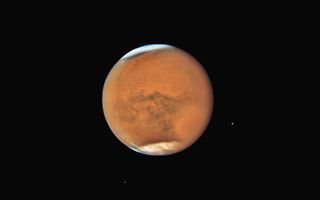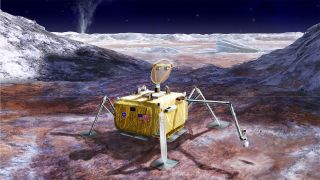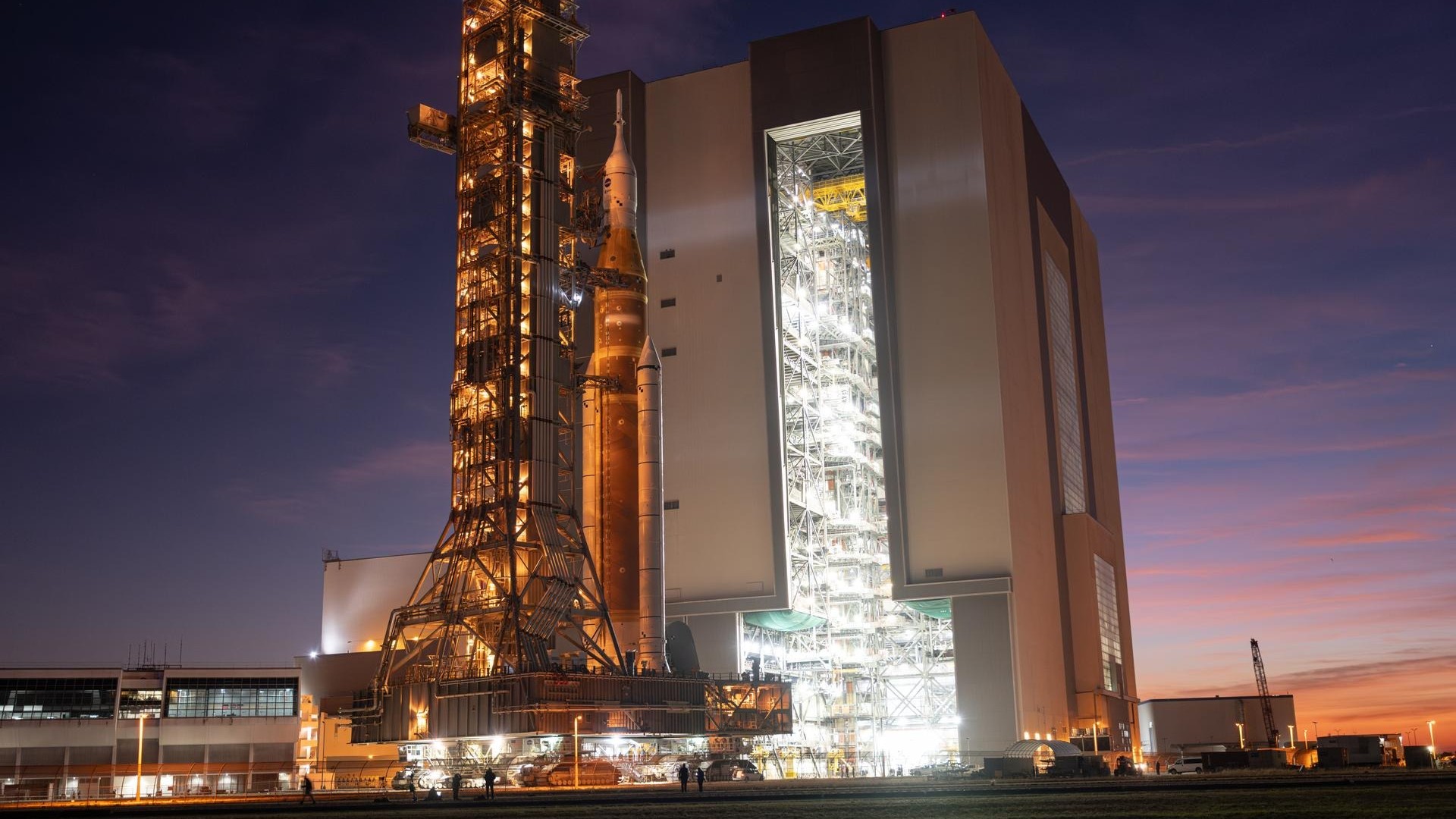Latest articles by Keith Cooper
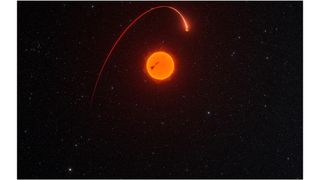
Giant planet or 'failed star?' Newfound mystery world blurs the lines
By Keith Cooper published
By tracing the corkscrew wobble of two stars as they move through the sky, the Gaia space mission has discovered one new giant "planet," plus a new brown dwarf.
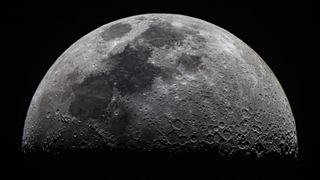
Is the moon still geologically active? Evidence says it's possible
By Keith Cooper published
Wrinkle ridges that formed in the past 160 million years suggest recent geological activity on the moon.

Trump wants the US to land astronauts on Mars soon. Could it happen by 2029?
By Keith Cooper published
There are many obstacles to overcome before humans can set foot on Mars, including problems surrounding launch mass and closed-loop systems and the hazards of space radiation.
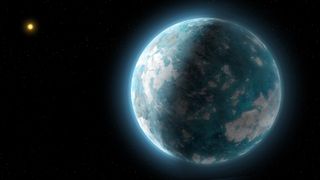
Newly discovered super-Earth orbits in and out of its star's habitable zone. Could life survive its extreme climate?
By Keith Cooper published
Located less than 20 light years away, HD 20794d could potentially be one of the most Earth-like planets found so far, despite its extreme climatic variability.
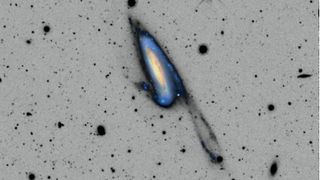
Scientists find hints of the dark universe in 3D maps of the cosmos
By Keith Cooper published
Computer algorithms can model the universe, matching simulations to observations and revealing the distribution of dark matter.
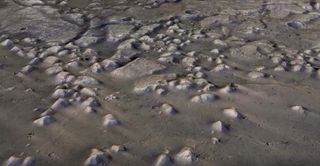
Mysterious Mars mounds may bolster case for ancient Red Planet ocean
By Keith Cooper published
Buttes and mesas in Mars' Chryse Planitia contain clay minerals made from liquid water interacting with the rock nearly 4 billion years ago.
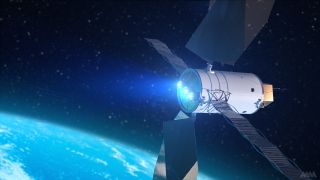
Electric spacecraft propulsion may soon take a leap, thanks to new supercomputer
By Keith Cooper published
Spacecraft powered by electric propulsion could soon be better protected against their own exhaust, thanks to new supercomputer simulations.
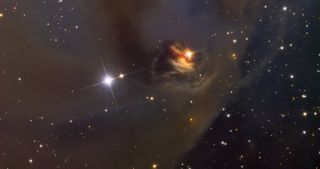
A young star may soon disappear: Inside the great dimming of T Tauri
By Keith Cooper published
The young protostar T Tauri is about to be eclipsed by a huge disk of gas and dust that could prompt the star to fade or even disappear.
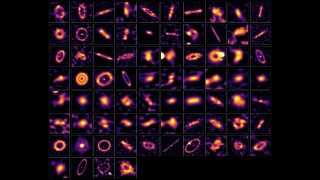
Trillions of comets discovered orbiting alien planet systems (image)
By Keith Cooper published
Using the Atacama Large Millimeter Array, astronomers have discovered icy exocomet belts circling 74 different alien planetary systems.
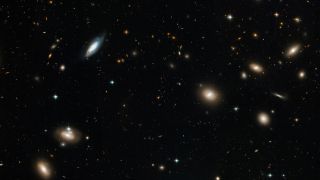
Hubble tension is now in our cosmic backyard, sending cosmology into crisis
By Keith Cooper published
Measurements of the distance to the Coma Cluster of galaxies find that it is millions of light years closer than the standard model predicts.
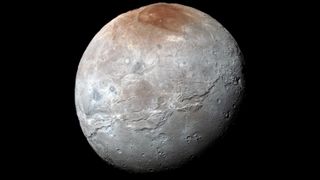
Charon: Pluto's dwarf planet partner
By Keith Cooper last updated
Reference As the gatekeepers to the Kuiper Belt, Charon and Pluto are a unique double dwarf planet system.

100 years ago, Edwin Hubble proved our Milky Way galaxy isn't alone
By Keith Cooper published
A century ago, humans didn't know other galaxies existed. Here's how Edwin Hubble changed that view.
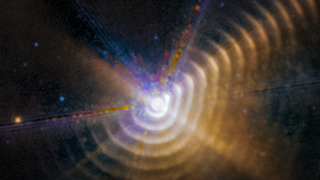
James Webb Space Telescope watches planet-forming dust shells zooming through space
By Keith Cooper published
The shells of carbon-rich dust are expanding outward into space at the breakneck velocity of 1,600 miles per second.
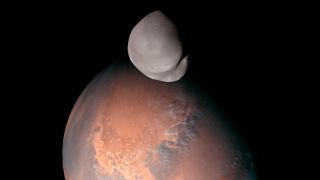
Deimos: Mars' smallest moon
By Keith Cooper last updated
Reference Mars' moon Deimos is still mysterious a century and a half after its discovery.
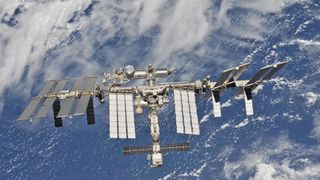
Space mysteries: How does the ISS stay in orbit without falling to Earth?
By Keith Cooper published
The International Space Station is always falling, yet it never crashes to Earth or burns up in our atmosphere. How is this possible?
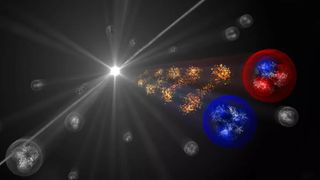
How 2024 brought us deeper into the world of particle physics
By Keith Cooper published
Dark matter, antimatter, W bosons and neutron lifetimes all feature in our top 10 stories.
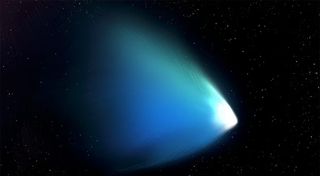
Asteroid-comet chimera Chiron has an unusual ice mix, James Webb Space Telescope finds
By Keith Cooper published
An object that orbits in the space between Jupiter and Neptune has chemistry that could tell us more about the birth of the solar system.
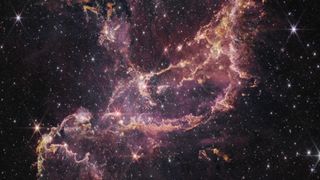
Hubble's 'impossible' planet explained? Gas giants may have formed fast in early universe
By Keith Cooper published
An ancient exoplanet dated at 12.7 billion years old could have formed over a long period in a giant disk of gas, according to new JWST observations.
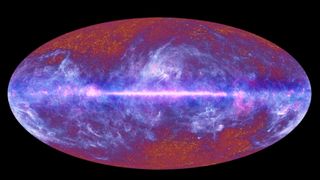
What is the shape of the universe?
By Keith Cooper last updated
How do astronomers describe the shape of the universe, and what could it mean for the fate of the cosmos?
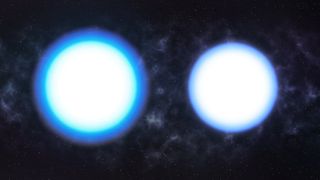
Puffy white dwarfs could shed light on mysterious dark matter. Here's how.
By Keith Cooper published
Astronomers just took a big step toward a better understanding of white dwarfs, a discovery that could shed light on mysterious dark matter.
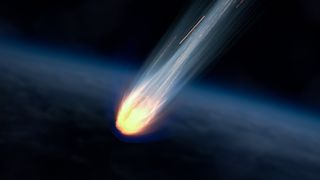
Could the Geminid meteor shower threaten satellites and astronauts on the International Space Station?
By Keith Cooper last updated
We evaluate how the International Space Station is protected from the impacts of tiny meteoroids and the level of risk to smaller satellites.

Astronomers discover 7 new 'dark comets,' but what exactly are they?
By Keith Cooper published
By doubling the number of known "dark comets," astronomers have been able to split them into two camps depending on their location in the solar system.
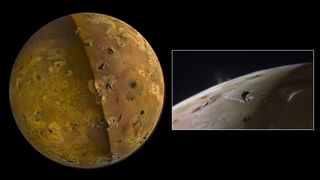
What causes volcanic eruptions on Jupiter's moon Io? Scientists aren't so sure anymore
By Keith Cooper published
New measurements from NASA's Juno probe have seemingly put to bed the possibility of a magma ocean beneath the surface of Io.
Breaking space news, the latest updates on rocket launches, skywatching events and more!

